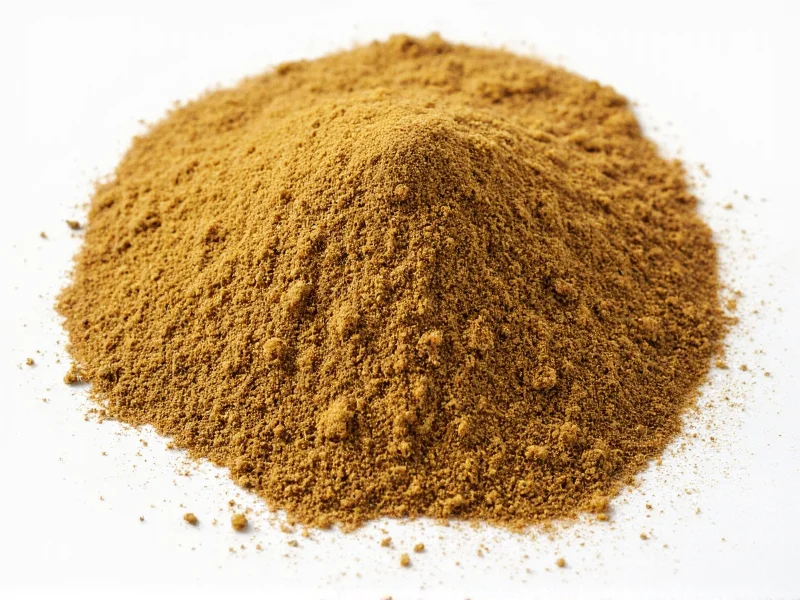Understanding the difference between coriander and its substitutes begins with clarifying a common confusion: coriander refers to the dried seeds of the Coriandrum sativum plant, while cilantro describes the fresh leaves. When recipes call for "coriander" as a spice, they mean the ground or whole seeds, not the herb. This distinction is crucial when seeking appropriate substitutes.
Why Coriander's Unique Flavor Profile Matters
Coriander seeds deliver a complex flavor profile—citrusy, slightly sweet, with warm woody notes and a hint of floral aroma. When toasted and ground, they develop nutty undertones that enhance both savory and sweet dishes. This distinctive combination makes finding perfect substitutes challenging, as most alternatives only match one or two aspects of coriander's flavor profile.
Top 5 Spices Similar to Coriander
While no single spice replicates coriander exactly, these options work well depending on your recipe's requirements:
| Substitute | Flavor Comparison | Best For | Substitution Ratio |
|---|---|---|---|
| Cumin | Earthier, stronger, less citrusy | Curries, stews, chili, Middle Eastern dishes | 3/4 tsp cumin per 1 tsp coriander |
| Caraway seeds | More anise-like, sharper | Rye bread, sauerkraut, goulash | 1/2 tsp caraway per 1 tsp coriander |
| Fennel seeds | Sweeter, more pronounced licorice note | Italian sausages, fish dishes, baked goods | 1 tsp fennel per 1 tsp coriander |
| Garam masala | Complex blend including coriander | Indian curries, rice dishes | 3/4 tsp garam masala per 1 tsp coriander |
| Curry powder | Varies by blend, usually contains coriander | General curry dishes, marinades | 1 tsp curry powder per 1 tsp coriander |
When to Choose Which Coriander Substitute
Selecting the right alternative depends on your specific recipe and desired flavor outcome:
For Indian Cuisine
When substituting coriander in curry recipes, garam masala provides the most authentic alternative since it typically contains coriander as a primary ingredient. For best results in best substitute for coriander in curry situations, use a high-quality garam masala with visible coriander content. If unavailable, a combination of cumin and a pinch of cardamom better replicates coriander's complexity than cumin alone.
For Middle Eastern and Mediterranean Dishes
Cumin shines as the ideal replacement in falafel, hummus, and za'atar blends. The coriander vs cumin flavor difference becomes less pronounced when both are used with other warm spices like cinnamon and allspice. For tabbouleh or other herb-forward dishes mistakenly calling for coriander seeds, fresh cilantro actually provides the intended flavor.
For Baking and Sweet Applications
Fennel seeds work surprisingly well in spice cakes, gingerbread, and apple pies where coriander's citrus notes enhance sweetness. When seeking spices that taste like coriander for desserts, fennel's natural sweetness makes it preferable to earthier cumin. For optimal results, toast fennel seeds lightly before grinding to bring out their natural sugars.
Pro Tips for Successful Substitution
Professional chefs recommend these techniques when replacing coriander in recipes:
- Toast whole spices first—heating releases essential oils, making substitutes more flavor-comparable to toasted coriander
- Combine substitutes—a 50/50 blend of cumin and fennel seeds mimics coriander's complexity better than either alone
- Adjust acidity—since coriander has citrus notes, adding a squeeze of lemon juice can compensate when using earthier substitutes
- Consider freshness—stale substitutes won't perform well; replace ground spices every 6 months for optimal flavor
Common Mistakes to Avoid
Many home cooks make these errors when seeking what spice can I use instead of coriander:
- Using cilantro leaves as a substitute for coriander seeds (they're completely different flavor profiles)
- Substituting equal amounts without adjusting for potency differences
- Using pre-ground substitutes when fresh grinding would yield better flavor
- Ignoring the recipe's cultural context when choosing alternatives
Creating Your Own Coriander Replacement Blend
For the most accurate coriander seed replacement in recipes, create this custom blend:
Mix together: 2 parts cumin, 1 part fennel seeds, and a pinch of ground cardamom. Toast the whole spices in a dry pan for 1-2 minutes until fragrant, then grind fresh. This combination captures coriander's citrus, earth, and floral notes better than any single substitute. Store in an airtight container for up to one month for best results.
Special Considerations for Dietary Restrictions
For those with specific dietary needs:
- Gluten-free cooking: Ensure curry powder or garam masala substitutes are certified gluten-free
- Low-sodium diets: Cumin provides flavor without added salt, making it ideal for seasoning
- Allergies: Caraway may cause reactions in those with celery or carrot allergies due to botanical similarities











 浙公网安备
33010002000092号
浙公网安备
33010002000092号 浙B2-20120091-4
浙B2-20120091-4